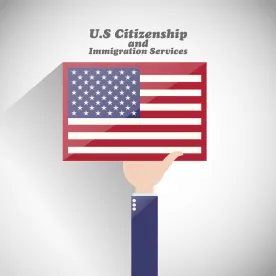Beginning in October 2020, employers in the construction industry in Pennsylvania will be required to use E-Verify, the federal government’s web-based program that allows employers to verify an employee’s work-authorization electronically.
The Pennsylvania Construction Industry Employer Verification Act prohibits an employer in the construction industry from knowingly employing unauthorized employees. The Act also requires them to use E-Verify. Since 2013, Pennsylvania has required public contractors in the Commonwealth to enroll in E-Verify.
E-Verify, which is administered by the U.S. Citizenship and Immigration Services and the Social Security Administration, was introduced in 1997. The use of E-Verify is voluntary, except for federal contractors or if required by state law. E-Verify does not replace completing the Form I-9 Employment Verification Eligibility. It is simply a second step in the process.
Currently, nine states require E-Verify use for all employers, 11 require it for public employers, and some, like Pennsylvania, require certain employers to use it.
Who is Covered?
The Act defines the construction industry as those who:
engage in the erection, reconstruction, demolition, alteration, modification, custom fabrication, building, assembling, site preparation and repair work or maintenance work done on real property or premises under a contract, including work for a public body or paid for from public funds.
The Act applies to all construction industry employers who transact business in the Commonwealth of Pennsylvania and employ at least one employee in the Commonwealth. It also applies to staffing agencies that supply workers to the construction industry and to subcontractors.
Record Retention
Records of the e-verification must be kept throughout the term of employment or for three years — whichever is longer. Form I-9 documentation, on the other hand, must be retained for three years from the date of hire or one year after termination — whichever is longer.
Enforcement
The Act will be enforced by the state Department of Labor and Industry (DOLI). Complaints regarding the employment of unauthorized individuals can be submitted to DOLI and DOLI will investigate them. DOLI may “enter and inspect” the place of business or place of employment at “any reasonable time” for the purpose of “examining and inspecting records of the employer that in any way relate to compliance” with the Act, including “full and accurate statements in writing … of the work authorization verification process for all employees ….” DOLI also may “interrogate persons” to ascertain whether an employer is in compliance.
Depending upon the seriousness of the violations, penalties may include a probationary period during which the employer must file quarterly reports with DOLI and the possible suspension of business licenses.
Defenses
Proof that the employer verified the employment authorization of an employee (who is later found to be unauthorized) through E-Verify creates a rebuttable presumption that the employer did not knowingly employ an unauthorized employee in violation of the Act.
Moreover, an employer who uses E-Verify and fails to hire or terminates an employee based upon what turns out to be incorrect information in E-Verify will be immune from liability to the employee.





 />i
/>i

